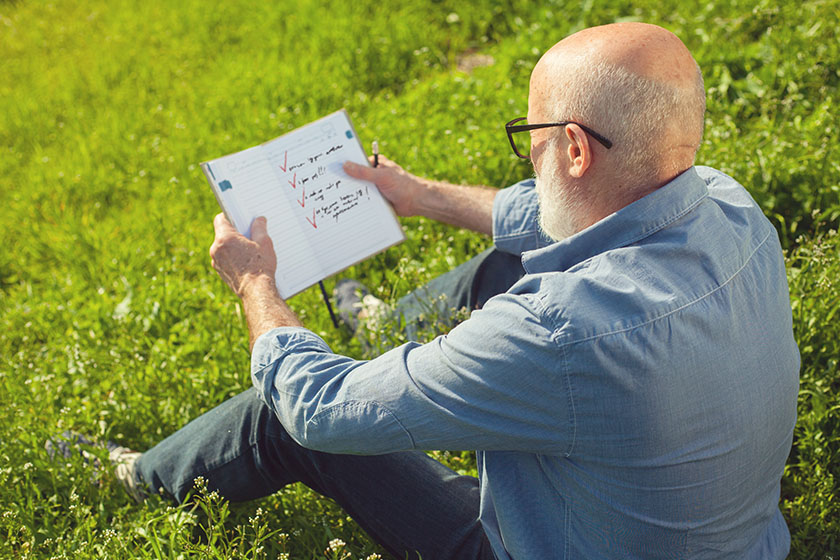
Time Management in Retirement and Why Is It Crucial?
Time management refers to the way you organize and manage your time. It is possible to become disoriented without a job and family structure. It might occur to you that you cannot remember what day of the week it is or that you have nothing to show for a whole year.
Finding purpose and satisfaction in life is one of the most significant challenges the newly retired face. Time management in retirement is even more critical than during full-time employment. You can schedule your time according to your priorities by working your time correctly. When you take control of your time, you can accomplish more in less time and without stress.
Why Is Time Management Critical in Retirement?
Leisure time can positively influence retirees’ happiness and sense of peace, while planning can help prevent boredom. You’ll feel a sense of accomplishment and confidence in your abilities if you manage your time correctly and meet your deadlines. Completing your daily to-do list is a powerful motivator that can lead people to improve their time management skills and discover new opportunities.
Setting goals and priorities for leisure time is the main focus, then evaluating whether they are reasonable and achievable. Having goals for our free time increases our quality of life when we’re 50 and older. The key to a happier retirement is not how much free time you have. It’s how you spend it. Here are eight methods for practical time management technics after retirement.
1. Prioritize Tasks
Retirement comes with a lot of free time, so many fill it with busy work. While busy work consumes time, it provides no sense of fulfillment. You can accomplish the things you want to do at your own pace once you accept that you don’t have to be busy every minute of the day. Make a list of the most urgent and essential tasks you need to accomplish for the day, then make those your top priority. Some examples are a workout routine or the first steps of starting your business.
2. Make a Schedule
According to researchers, time management is not about meticulously blocking out every minute of your day. Do not plan your activities hour by hour, but daily or weekly. In this way, you know that you will work out on Sunday and Wednesday or have a meeting on Friday, without having to rush from one activity to another. You will feel drained if you over-plan your schedule.
3. Daily Management

While some people are planners, others prefer a more free-form approach. Regardless of your personality, you probably like knowing what you’ll do when you wake up. Organize your time by listing the things you need to get done. It’s essential to have a general plan.
Getting things checked off your to-do list is a great feeling. Therefore, create a list of everything you need to do. You do not have to be productive or stay busy your whole retirement.
Stay focused on your priorities, and don’t get distracted by everything you think you need to do. You should schedule your most important tasks for a week and leave a few gaps for spontaneity.
4. Follow Your Passion
It is easier to structure your days after retirement when you do something you love. This way, life becomes more interesting, rewarding, and fun. You will have a much better time in retirement if you have a fun hobby to enjoy. A new hobby or activity also makes you feel worthwhile and valuable at the end of the day. You can also consider starting your own business in retirement.
5. Create A Work Out Routine
Exercise has several health benefits for seniors. It doesn’t matter whether you walk in the park, lift weights, or do chair yoga. Being psychically active is vital to staying healthy. Besides strengthening your muscles, it also improves your weight and reduces the risk of many diseases. Creating a workout routine is an excellent way of supporting your health while having a sense of accomplishment.
6. Be Flexible

For everyday chores, you don’t necessarily need a schedule. Rather than planning out the housekeeping, do a few tasks as you have time, knowing it will all get done eventually. Likewise, if you decide that you don’t want to do an activity today, move it to tomorrow, next week, or even later.
7. Forget about Multitasking
While multitasking may seem like an excellent way to get more work done, it decreases productivity in the long run. You start multiple projects but are only able to finish a few. You can best manage your time by focusing on one task at a time and giving it your full attention while you work on it.
8. Reduce Distraction
Distractions are one of the leading causes of productivity loss. Smartphones and social media sites can mess up your schedule and distract you from your priorities. The temptation to spend all of your time on electronics is strong. Decide how much time you will spend on these passive activities. So that you don’t fall into the rabbit hole of cyberspace, you may even set aside specific times for checking email and Facebook.
Final Words
Your retirement life shouldn’t be ruled by your entire schedule and appointments but by your freedom and flexibility to do whatever you like. In retirement, time management involves organizing and scheduling your time for various activities. It is possible to accomplish more using different tools and techniques in less time.
Read more:
The most important thing in time management is prioritizing tasks. The first thing I usually do each day is taking a deep breath and write down all I have to do during the day. Then I start prioritizing them. I list the things I have to do first because I do not have to keep them in my mind; second, it is so easy to recognize the most important thing when writing them on paper. I recommend making a checklist of the things that have to be done.
My husband and I use the Pomodoro technique to organize our working tasks and manage time. If you are too anxious to do your daily tasks, you can use this technique. It is so helpful as it aids you in managing your day and working on an assignment without distractions. It is also beneficial as it helps you concentrate and focus on your work. I use this technique every day when there is a lot to distract me from my work or life.